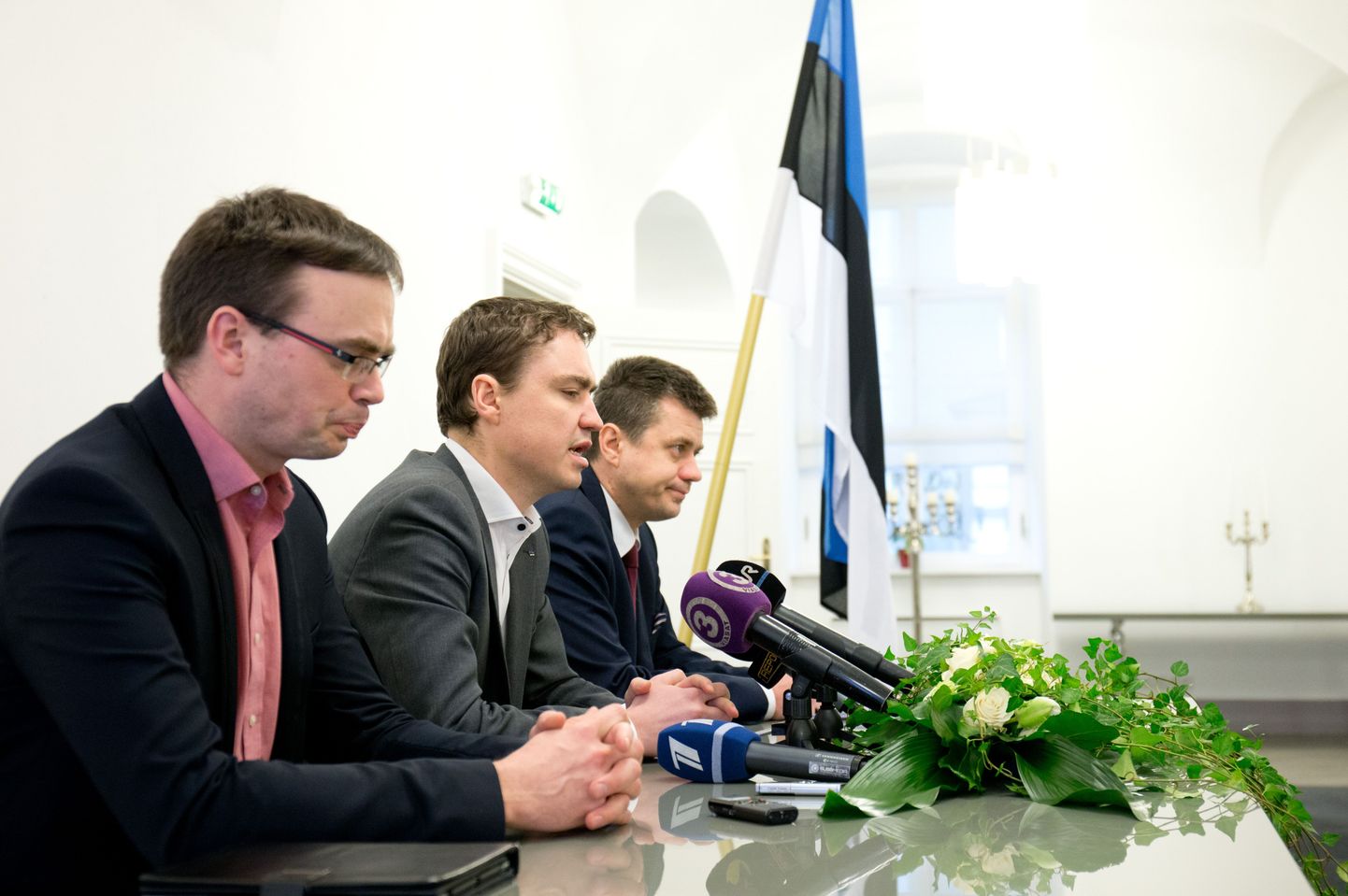
After month-long gruelling efforts, Reform chief Taavi Rõivas said yesterday that they are on finishing line. Was this an April Fools’ Day thing? Rather not, one would guess.

After month-long gruelling efforts, Reform chief Taavi Rõivas said yesterday that they are on finishing line. Was this an April Fools’ Day thing? Rather not, one would guess.
Even so, the election winners’ enthusiasm felt weird: Soc Dems have continued to be quite sceptical and, to save some face, IRL cannot give up tax reform. This was their only memorably advertised issue. Their rating at an historic low, waiving it would be risky indeed. But there’s not much choice.
Having talked a bit yesterday morning, they convened again in the afternoon. After a couple of hours, the text of the agreement had been jointly surveyed. They discussed peripherization, development of entrepreneurship, research activities, a stimulus package for the low earners. All that was left were «the trivialities» as costs-revenues and minister posts. «We managed to argue through all topics and tomorrow (today – edit) afternoon work will continue with state budget,» sounded a curt comment by Mr Rõivas at 8 pm.
The month has wearied them all. Should an agreement emerge, it comes with eyes red and suspicious. Who are the ones, then, talking about the future of the state? From Reform, it’s Mr Rõivas plus Jürgen Ligi, Keit Pentus-Rosimannus and Martin Kukk; of Soc Dems Sven Mikser, Indrek Saar, Urve Palo and Rannar Vassiljev; of IRL they are Urmas Reinsalu, Sven Sester and Helir-Valdor Seeder. The list is a hint of possible portfolio possessors.
Mr Mikser expressed hopes that in the 400 metres with hurdles they are coming unto the final stretch. «There are still the various measures which are considered as extremely important by this or that negotiation partner and which have not yet found approval by parties or sources to cover them,» he noted.
According to Mr Mikser, it is hard to tell if the final agreements are born today. «Well we do more or less sense the space wherein the agreement ought to happen. This is not piecework or ditch digging so as we could say we have a hundred metres ready and ten left to dig. Rather, this is seeking compromise between differing variants,» said the politician.
Mr Rõivas acknowledged that a long step forward has been taken regarding IRL-desired low earner support package and technical specifications are to follow. After the talks last night, he said that covering the costs i.e. the existence of money cannot be underestimated, but should this also be over with, they will arrive at ministerial seats. He estimated that the councils of all three parties might convene on Monday, say, which would signify hopes of a government by Tuesday or Wednesday.
A chief IRL speaker, Helir-Valdor Seeder admitted that a small step towards the final text has indeed been taken. That, in the low earner issue the final solution is still wanting, but hope remains. «When we have finally weighed all these things and also looked through the Excel table with the remaining question marks, then actually we are indeed very close to something,» said Mr Seeder.
Yesterday morning, the talks also featured topics like the environment, rural life, and energy. Not to mention animal protection. «The topics on the table have been of very varying fields. In the main big issues the understanding exists and currently it is just polishing the details,» said the lead talker Mr Rõivas. «We have the type of agreements that labour taxes will drop and child benefits will rise, but we don’t want to tell the numbers until the overall picture comes together.»
In the mind of Mr Mikser, the coalition treaty must materialise next week, latest, before the prime ministerial candidate Mr Rõivas will report to Riigikogu the basis of putting together the government and the parliament needs to decide if it fits them and the people. «The next week is definitely when the treaty ought to exist and approved by all the parties,» said Mr Mikser.
Having received the powers, a prime ministerial candidate has seven days to present the President with the membership of new government; within three days, the latter will nominate the government. A new government with a maximum of 15 members will enter into office by being sworn in before the Riigikogu, whereby the powers of the previous government end and these of the new begin. After that, the President will release former government from its duties.
On March 4th, Mr Rõivas said that though the time spent to negotiate is reckoned in weeks rather than days, the aim remains to have a functioning government as fast as possible. And, as the parliament convenes to its initial session, the new government would immediately enter into office. It has turned out a bit different. For a reminder: at a certain point, Free Party was ousted from the talks; finding common ground is difficult; there are no grand goals, visions; to cover the promises, pennies are being counted; minister portfolios are undecided; day by day, trust between all parties is wearing out.